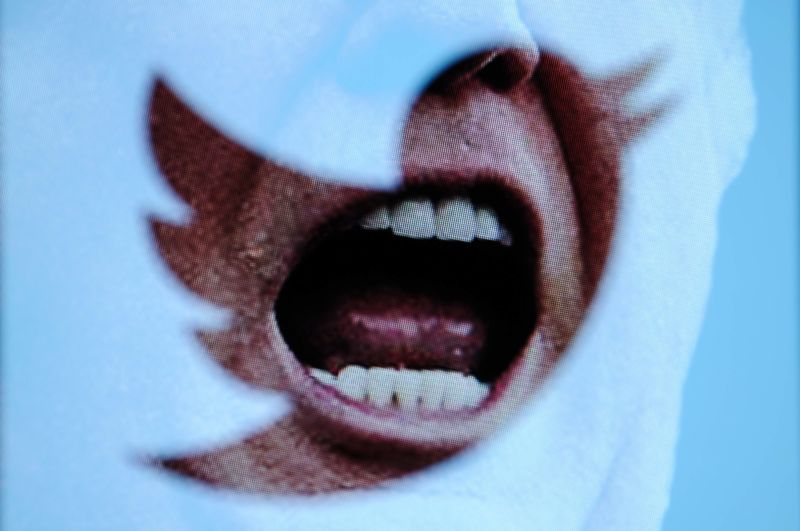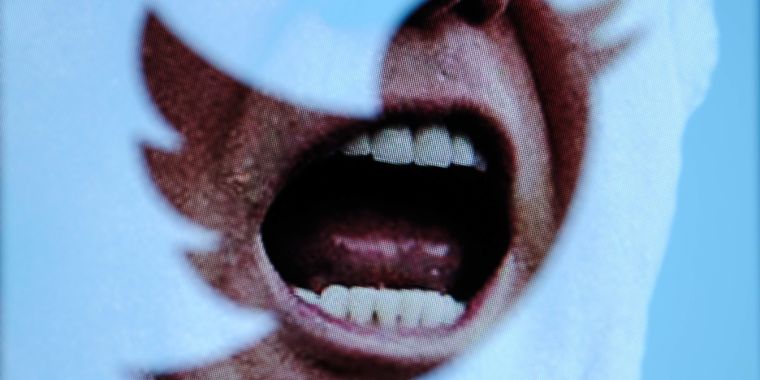
Twitter is reviewing its controversial policy around permanently banning users, potentially bringing content moderation more in line with Elon Musk’s vision of the social media platform, regardless of whether the Tesla chief takes ownership.
The Silicon Valley company has been investigating whether there are other content moderation tools that could replace the harshest punishment for violating certain rules, according to several people familiar with the situation.
But any change is unlikely to pave the way for Donald Trump to return to the platform, two people said, as lifting bans for violating his policy against incitement to violence is not considered. The former US president was given a lifelong ban shortly after a mob of his supporters raided the US Capitol on January 6 last year.
Instead, staffers are looking at areas where they believe Twitter may have been disproportionately heavy-handed in cutting users off its services for minor offenses, such as sharing misleading information.
The review, which began months ago and has yet to come to any conclusions, comes amid renewed attention to the policy following the temporary blocking of American rapper Kanye West’s account after he posted an anti-Semitic message on Saturday.
An easing of the permanent ban policy has been touted by Musk, who made a startling statement last week that he wanted to buy Twitter for $44 billion after initially agreeing to do so in April but later trying to pull out of the deal, which sparked a high-profile legal dispute.
On Friday, the Delaware judge overseeing the case, which was scheduled to go to trial on October 17, agreed to postpone the legal action until November to give the two sides more time to reach a solution. It is still unclear if and when the Twitter sale will take place.
Musk, who describes himself as an “absolute free speech,” has previously said that if he takes over the platform, he would relax Twitter’s moderation rules and move from permanent bans to “timeouts” or suspensions.
He has also suggested reducing the visibility of objectionable content in users’ feeds or giving them more choice about what they see. “I think it’s possible to take the content you see from ‘warm & fuzzy’ all the way to ‘bring on mf!’ is the way to go,” he wrote on Twitter last week.
A Twitter spokesperson said the company “always studies the rules that apply to our service and the tools and features that can encourage healthy conversation.”
According to its website, San Francisco-based Twitter is suspending users who have violated its rules “in a particularly egregious manner” or “repeatedly violated even after receiving reports from us.”
For example, Twitter’s policy does not allow users to share violent threats, terrorism, harassment, and hate speech. For areas such as sharing misinformation about COVID, Twitter has a clear “strike policy,” where five violations or strikes result in a permanent ban.
In addition to bans, Twitter also issues temporary account suspensions and labels or reduces the visibility of content that violates its rules.
A move away from permanent bans would be welcomed by Republicans, many of whom have complained about censorship of conservative votes on social media platforms — accusations the platforms deny. In contrast, many left-wing politicians and human rights activists have called for platforms to crack down on the worst offenders.
Twitter is an outlier in its treatment of Trump. Rival Meta has said it will lift its ban on Trump from January if and when the risk of violence has decreased, while YouTube has made a similar statement.
In May, Musk told the Financial Times he would roll back the ban on Trump, adding that he had the support of Twitter’s co-founder, Jack Dorsey.
© 2022 The Financial Times Ltd. All rights reserved. May not be redistributed, copied or modified in any way.

